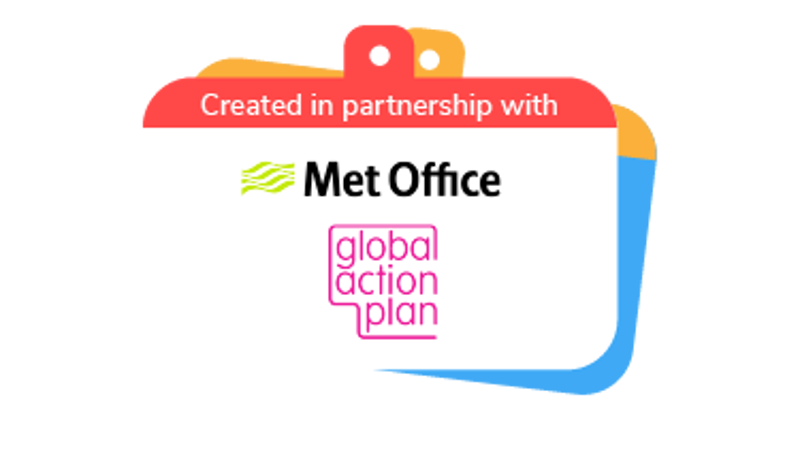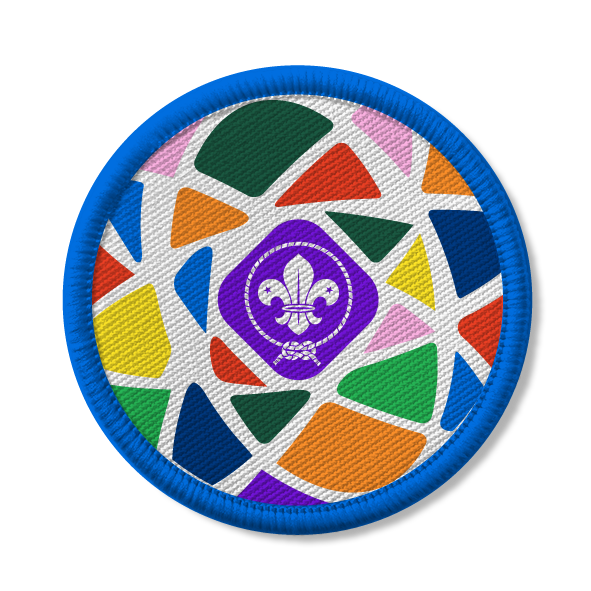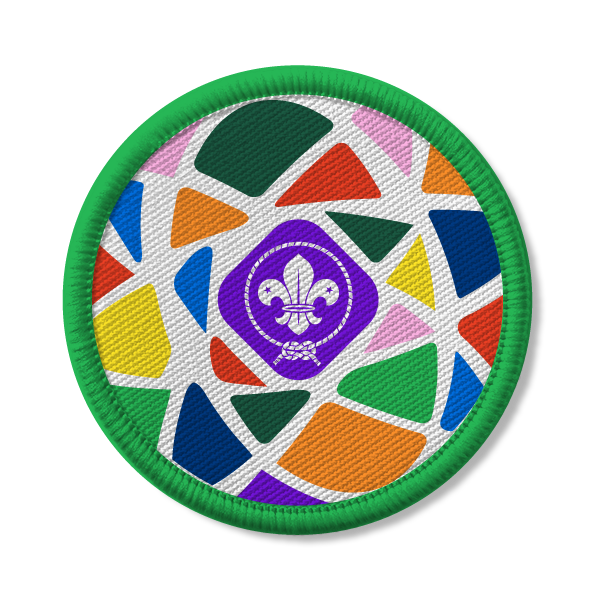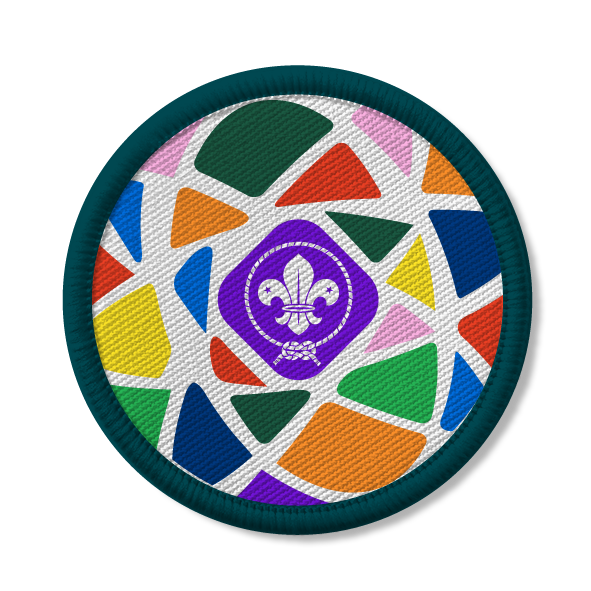
Pollution promises
You’ll need
- Pens or pencils
- Scrap paper
- String
- Luggage tags
- Tree Branch
Before you begin
- Use the safety checklist to help you plan and risk assess your activity. There's also more guidance to help you carry out your risk assessment, including examples. Don’t forget to make sure all young people and adults involved in the activity know how to take part safely.
- Make sure you’ll have enough adult helpers. You may need some parents and carers to help if you’re short on helpers.
The focus of this activity is air pollution. This is the release of harmful chemical and substances into the air we breathe, both indoors and outdoors.
Air pollution affects us all. The particles and gases that make up this pollution enter our bodies, and can be damaging to our physical and mental development.
By breathing in the pollutants, they can have impact our lungs, and enter our blood stream, damaging our heart or brain. The more of these pollutants we breathe, the higher the risk of harm and the bigger impact it can have on our health.
There are many causes of air pollution.
Outdoor air pollution's caused by:
- vehicles (cars, vans, planes, trains, boats and so on)
- factories
- farming
- burning fuel (bonfires, wood burners, barbecues and so on)
Indoor air pollution is caused by:
- cooking
- chemicals in cleaning or personal care products
- dust
- mould
Outdoor air quality in the UK has improved significantly during the past 40 years. But there is no safe level of air pollution, and there is still more we could do.
Start the activity
- Talk about what we can do to help ourselves deal with air pollution. Think about simple activities the young people can do to save their own health, such as opening windows when someone is cooking or cleaning, or trying not to walk near busy roads.
- What can you promise to do as Scout volunteers or at Scouts to improve air quality at meetings, camps and events?
- Now, everyone should think about actions they could take reduce the air pollution that they produce and in turn help to protect our planet, such as walking somewhere, riding a bike or using public transport instead of taking a car. You could discuss why these things would help to reduce air pollution.
All children
Reduce exposure to air pollution
- Open windows to let the fresh air in – especially when your family is cooking or cleaning.
- Discover quieter routes to school and other places you travel to; avoiding busy roads where possible. Walk on the pavement that’s furthest from the road, especially if you're on a busy road.
Reduce our contribution to air pollution
- Ask parents/carers to get fragrance-free milder cleaning and personal care products.
- Try to avoid non-essential deliveries or chose the low emission delivery option when shopping online.
- Ask parents/carers if you can walk, cycle, scoot, wheel or take public transport whenever you can instead of driving in a car.
- Don’t idle – ask adults to turn off their engines when the car isn’t moving, and especially around schools.
- Raise awareness about air pollution and what needs to be done to improve it at your school (e.g. via school councils) and in your community. Call on government, businesses and other decision makers to help make the changes you want to see, for a cleaner air future!
Children with health conditions
- Ask parents/carers not to burn things indoors e.g. candles and log burners.
- Ask people not to smoke in your home, or near you.
- Open windows to let the fresh air in – especially when your family is cooking or cleaning.
- Ask parents/carers to get fragrance-free milder cleaning and personal care products.
- Discover quieter routes to school and other places you travel to; avoiding busy roads where possible.
- Talk to your doctor or nurse about how air pollution impacts your health condition. Ask for more information about what you and your family can do.
- Ask an adult to help you sign up to air pollution alerts and follow the guidance that it gives you
- Ask an adult to help you find out more information about your health condition and air pollution (e.g. Asthma Lung UK website)
- Sign up to an air quality alert to know when air pollution levels are particularly high so that you can avoid it.
- In small groups ask the young people to come up with as many ideas as they can to help reduce air pollution.
- Bring everyone back together and share your ideas.
- Ask the group to think carefully about what they will do about air pollution. Ask them to choose one thing they’re willing to make a promise to do to help air pollution.
- What can you promise to do as Scout volunteers or at Scouts to make meetings, camps and events more sustainable, too?
- On a luggage tag, the young person should write out (or draw) their promise and add their name.
- In your meeting place, create a way of displaying these promises. This could take the form of a promise tree by putting up a tree branch that the promises could be hung on or adding them to a noticeboard.
- Ask everyone to hang or display their promises on the display and explain that these promises are on show to help us remember our promises and how they can help us.
These resources were produced by Scouts and Global Action Plan as part of the Clean Air Programme, which is supported through the UK Research and Innovation Strategic Priorities Fund (SPF) and delivered by the Met Office and other partners.
Reflection
This activity helps us all to think about air pollution and how it can harm us and our environment. During the activity we made a promise to do something to help. What is a promise? Why is it important to keep them? When else do we make a promise?
With our promises we made a display, how will this help us to keep our promises? What effect might our display have on others who see it?
Remember, you can use your voices to fight for a cleaner air future. Share your promise, let others know what you are doing and let them know what they can do to help too!
Safety
All activities must be safely managed. You must complete a thorough risk assessment and take appropriate steps to reduce risk. Use the safety checklist to help you plan and risk assess your activity. Always get approval for the activity, and have suitable supervision and an InTouch process.
- You could try drawing your positive action towards air pollution rather than writing.
- There could be a list of pre-prepared promises that children could choose from.
All Scout activities should be inclusive and accessible.
Is there any way you could present your ideas to other sections or groups, to wider volunteers, to decision makers, businesses or companies, or to local area, district and division groups? You could encourage them to do the same and make their own promises.
You could check in with everyone in three or six months to see if they’re keeping their promise, too.
Young people could come up with different ideas of how to display their promises, too.


